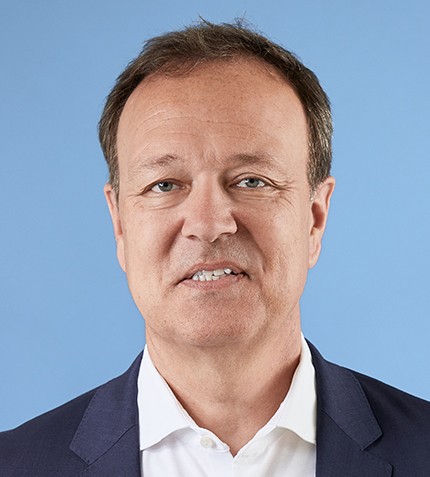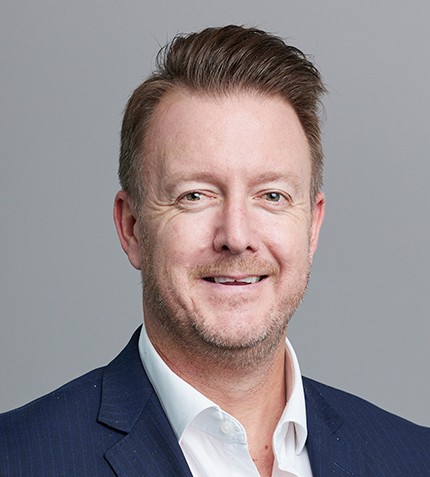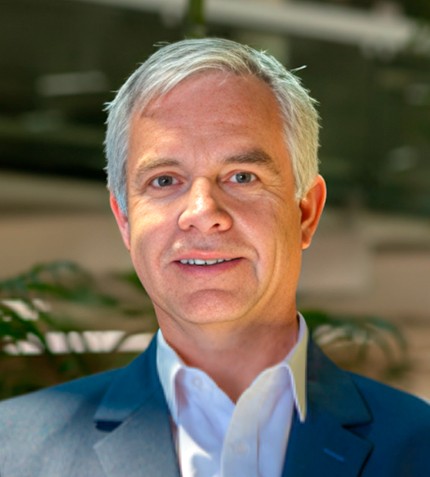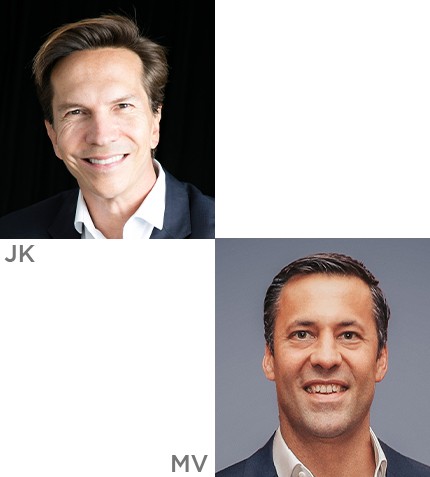
"Our mission will remain to provide reliable, efficient, and safe processes from development, aseptic filling, and visual inspection to parenteral packaging in an economically, ethically, and ecologically responsible manner."
Peter Soelkner
MANAGING DIRECTOR, VETTER PHARMA INTERNATIONAL
Can you introduce Vetter and highlight the company’s key achievements over the past year?
Vetter is an established family-owned CDMO in the fill and finish space with a focus on aseptic filling and packaging of a variety of containers including syringes, vials, cartridges, and dual-chamber applications. Over the last few years, we have additionally focused on our Vetter Development Services (VDS), where we entertain approximately 250 projects in clinical stage at our sites in Skokie, Illinois, and our new site in Rankweil, Austria. Vetter has a global team of 5,700 employees from more than 60 different nations, of which approximately two thirds are women. In 2021, we put additional cleanrooms into operation, broke ground for more expansions at our sites, and implemented more automated visual inspection machines in our center of visual inspection and logistics.
How important is the US for Vetter?
The US has always been extremely important for Vetter. When working in the niche of manufacturing high-end biopharmaceuticals, you have to look closely at the US market, as it continues to be at the forefront of innovation and enjoys ample funding for start-up and biotech companies. Our company provides services to various clients there ranging from small biotech startups to well established pharma companies.
One of the best decisions Vetter made was to establish a presence in the Illinois Science and Technology Park in Skokie, from which we can expand our development service activities in the US. In 2017, we also purchased a property in Des Plaines to be our US headquarters and further support our efforts in building out our North American footprint. Currently, over 50% of the company’s revenue comes from the North American market, and we have a team of 250 people in the US.
Covid-19 has impacted demand for fill finishes and accelerated the trend towards home-based care, driving up the demand for injectable products. How have pandemic-related trends impacted demand for Vetter’s services?
Since Vetter fills a three-digit million number of containers each year, many people think our company excelled in the vaccine filling space. The reality is that we are not in the business of the mass market, and we did not have a vial line sitting idle waiting for a pandemic to bring in business. With the onset of the pandemic, we realized we could not close our doors, as there were patients with critical conditions that still needed treatment, particularly in the areas of oncology and orphan drugs. With these patient needs in mind, we did not have the capacity to serve vaccination companies with regards to filling.
However, Vetter was instrumental in providing development support to companies looking to develop treatments that would assist in the fight against Covid-19. Additionally, we suddenly had a higher demand for products such as homecare treatments, drugs preventing blood clotting in Covid patients, and immune system-supporting drugs. Over the past five years, our company had an average compounded growth rate of 10%; this rose to 12% in 2021. Given global supply chain disruptions and new safety protocols, we view 2021 as a great success, highlighting our flexibility in supporting patients so that they received necessary treatments on time.
How does Vetter navigate shifting demand towards targeted development required for precision medicine and more large-scale requests?
Looking at projects which have received FDA approval, there is an array of orphan drugs and ultra-orphan drugs which highlight a trend towards creating molecules for targeted populations of only a few thousand patients worldwide. Vetter also manufactures orphan and ultra-orphan drugs in its active pipeline. Conversely, we see substances like insulin replacing GLP-1 analogue drugs for which we manufacture approximately 70 million syringes of the same kind. We have both small-scale and large-scale filling capabilities to serve customers in both the precision medicine and large-scale manufacturing spaces. Vetter is focused on offering the appropriate solution for each client’s project.
What are Vetter’s goals for 2022 and beyond?
We will continue to strive for impeccable quality in delivering products that adhere to all regulatory requirements. Our mission will remain to provide reliable, efficient, and safe processes from development, aseptic filling, and visual inspection to parenteral packaging in an economically, ethically, and ecologically responsible manner. 2021 marked the first year where we were globally CO2-neutral based on initiatives such as the exclusive use of electricity from verifiably renewable energy sources, and we will continue to invest in sustainability initiatives.










